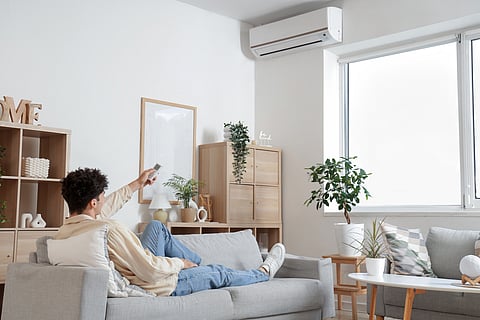How to reduce AC costs and save money on electricity bills in the UAE summer
Stay cool without the high costs: smart thermostats and simple habits to control AC usage

Dubai: Air conditioning is one of the biggest contributors to high electricity bills during the UAE’s sweltering summer months. While cutting back on AC use may seem unthinkable as temperatures soar, it is possible to stay cool without seeing a spike in your utility costs. With the help of smart technology and a few simple adjustments to your daily habits, you can enjoy a comfortable home and keep energy expenses under control.
Use a smart thermostat or AC controller
“Smart thermostats or air conditioning controllers are excellent tools for reducing energy consumption,” explained Dinesh Ramachandran, Technical & HSE Manager at Rentokil Boecker. “These systems allow users to control their HVAC units remotely, meaning you can adjust your cooling settings even when you’re not at home. This flexibility helps ensure optimal energy use, especially during peak hours.”
Smart thermostats and AC controllers often come with mobile apps, allowing you to monitor usage, set schedules, and automate temperature adjustments. This level of control can result in noticeable reductions in your electricity bill.
What’s the ideal temperature setting?
The Dubai Electricity and Water Authority (Dewa) recommends setting your air conditioning thermostat to a comfortable 24°C. This temperature strikes a balance between comfort and efficiency. It’s important to note that for every 1°C you lower the temperature, your energy consumption can increase by approximately 5 per cent.
If you're stepping out for a few hours, Dewa suggests turning the AC off or increasing the setting to 27°C. This reduces unnecessary cooling and conserves energy.
Ramachandran also recommends using the SLEEP mode available on many modern AC units. “This function automatically adjusts both temperature and fan speed to maintain comfort throughout the night,” he said. “Typically, the system raises the temperature by 1°C every 30 to 60 minutes until it reaches around 24–25°C, repeating this adjustment up to six times.”
Block out the heat with simple shading tricks
Looking for a no-cost way to cool your home? Close your curtains, blinds, or shades during the hottest parts of the day. This simple practice can significantly reduce indoor heat gain.
“Shading devices such as blackout curtains or solar screens are highly effective in minimising direct sunlight entering your home,” said Ramachandran. “Reducing solar heat helps maintain a lower indoor temperature, which in turn eases the burden on your AC system and lowers electricity consumption.”
Upgrade ageing AC units
According to Dewa, the average lifespan of an air conditioning unit is around ten years. If your unit is older, it might be time to consider an upgrade. Newer models with a 4- or 5-star energy efficiency rating can cut your cooling energy consumption by up to 25 per cent.
Going on holiday? Don’t switch the AC off completely
When leaving home for an extended period, it might be tempting to switch the AC off entirely. However, UAE-based home maintenance experts advise against this. “Keeping the air conditioning running during holidays at a moderate temperature - helps manage indoor humidity levels, which is crucial in the UAE’s humid climate,” said Ramachandran.
Turning off the AC completely can lead to excessive moisture build-up, potentially causing mould, mildew, and even structural damage. In some cases, this could lead to health issues or costly repairs once you return.
To avoid these risks, use programmable thermostats or smart AC controls that allow you to maintain a consistent indoor climate while you are away. Many of these devices can be controlled remotely via smartphone apps, giving you peace of mind and flexibility.
Sign up for the Daily Briefing
Get the latest news and updates straight to your inbox



